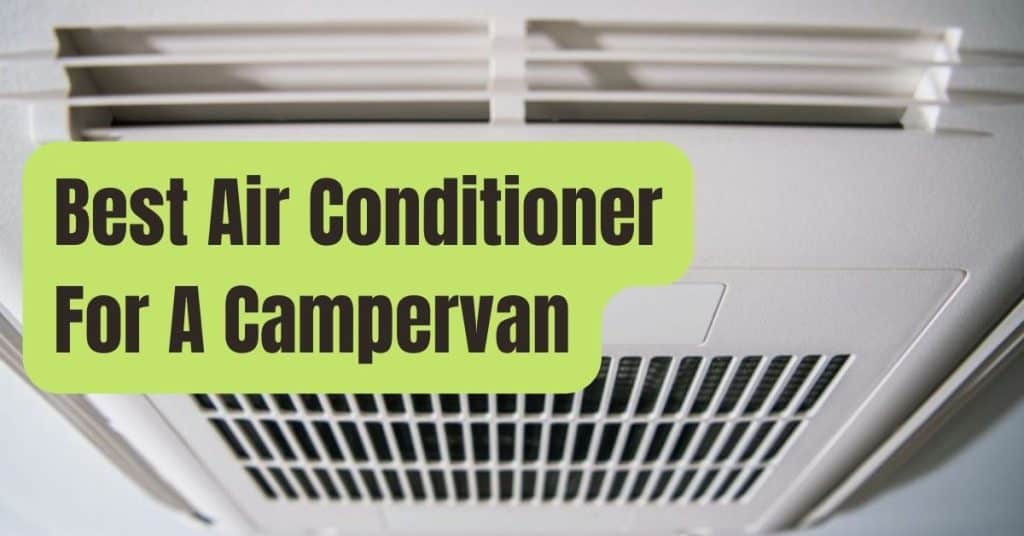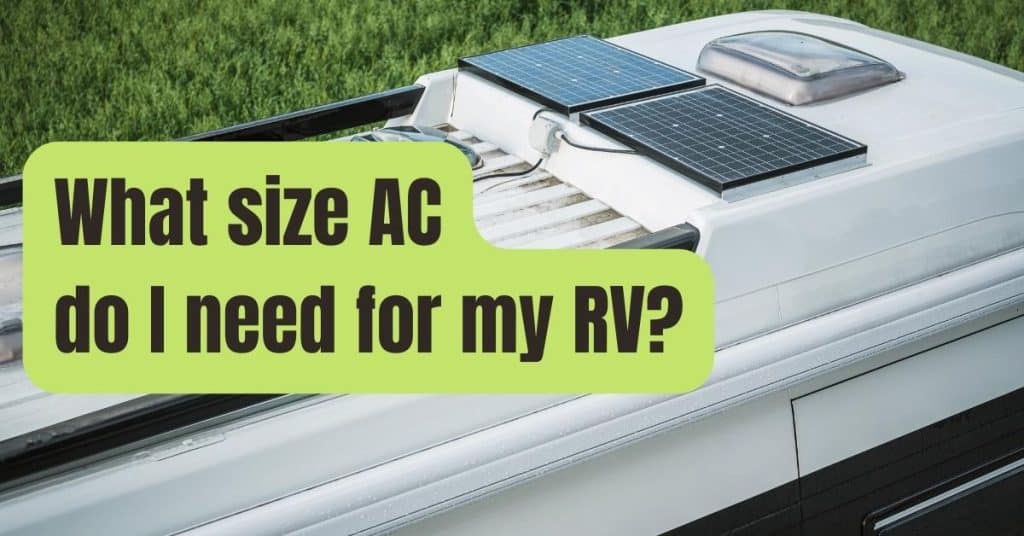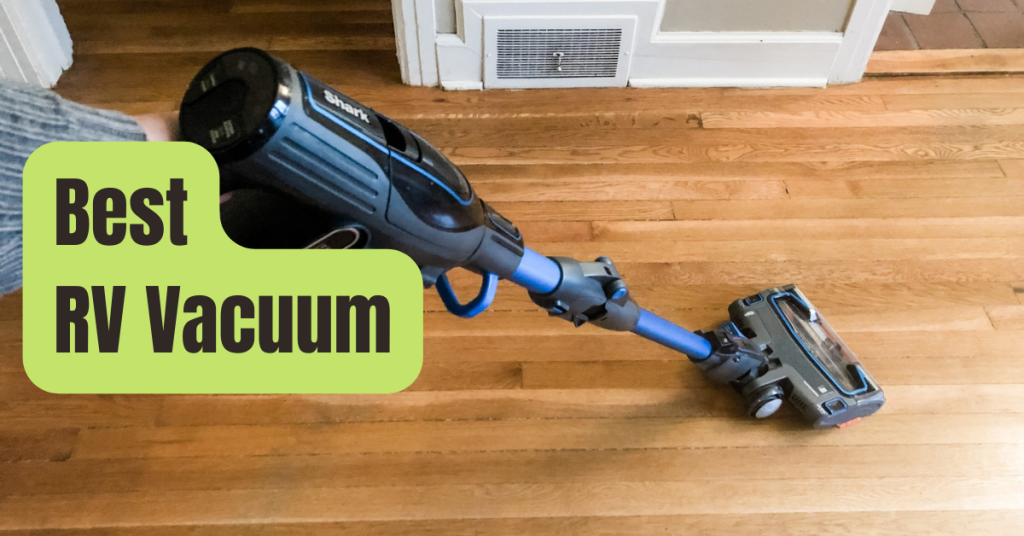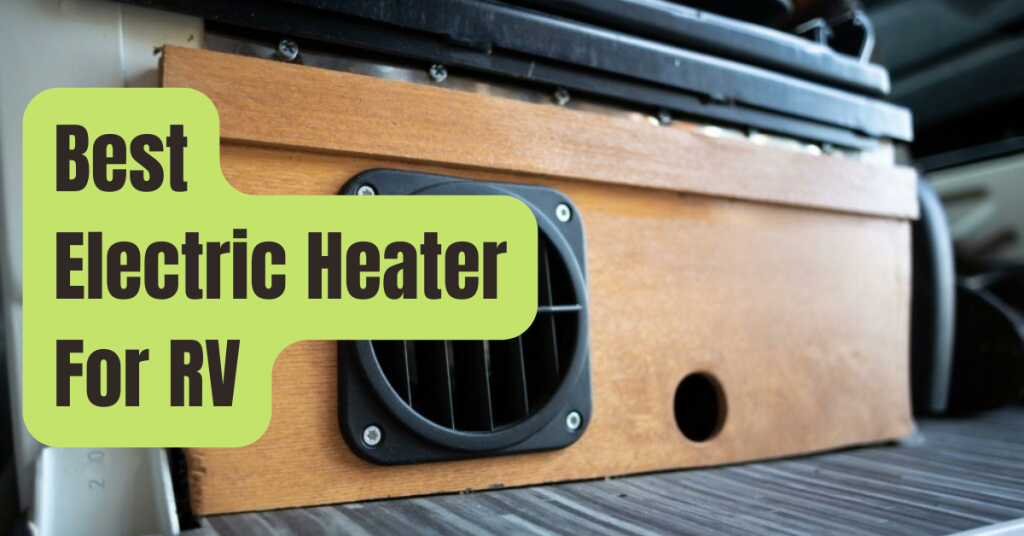The fear that your roof could be leaking is one of the worst sensations for anybody who has just acquired a new or old RV.
Roof damage is one of the worst things that can happen to an RV since it requires extensive labor and is quite costly to repair.
However, if you’ve never dealt with any of these situations, it’s easy to confuse a leaking RV air conditioner with a leaky roof.
Although the former is less of a concern, if your RV air conditioner leaks when it rains, you should be aware of the situation and take action.
Some of the most prevalent reasons why RV air conditioners leak when it rains are as follows:
- Shrouds that have been broken or are missing
- Bolts that are loose or missing
- Rubber gasket is broken or defective.
- Roofing or caulking that has degraded or been damaged
Now that you know why your air conditioner can be leaking, it’s time to figure out which of these problems you’re having in your RV.
Then we’ll have to figure out the simplest answer to each problem so you can have an AC unit that doesn’t leak.
Let’s get started!
How to Fix RV Air Conditioner Leaks When It Rains
Because the point at which water enters your RV and the point at which you notice the leak may be different, leaks may be difficult to detect.
Because water will flow until it reaches the lowest entry point, which might be a great distance from the source, this is the case.
However, if water is pouring in from the area surrounding your air conditioner, there’s a good chance something is wrong.
To figure out what it is, meticulously inspect every spot where water may enter.
Warning! Always ask the help of a companion while climbing onto your RV’s roof, especially when carrying bulky equipment like an air conditioner.
Read more: What To Do If Your RV’s Air Conditioner Isn’t Blowing Cold
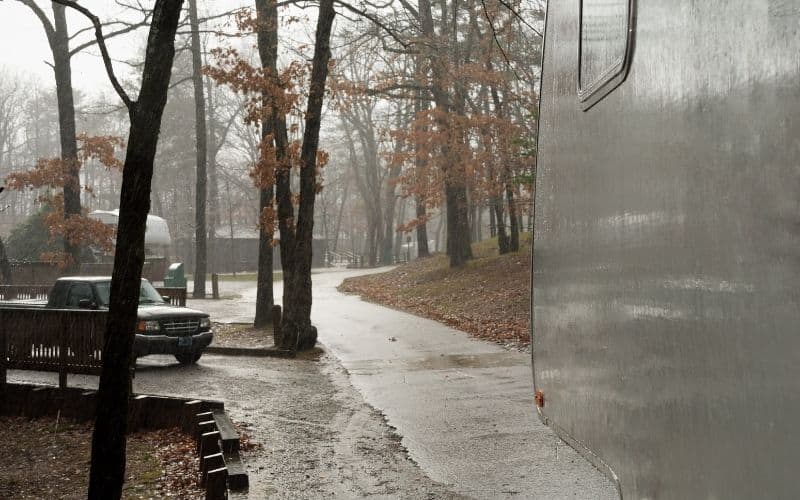
Bolts and Gaskets for Mounting
A rubber gasket and mounting bolts are necessary for attaching an air conditioning unit onto the roof of an RV.
Over time, one or both of these components may move or get damaged, resulting in leaks.
Between the top of your RV and the air conditioning unit is a rubber gasket that is clasped.
It keeps water out of any seals or connections.
Rubber, on the other hand, degrades when exposed to the environment for an extended period of time.
Check to check whether your rubber gasket is brittle or firm.
It’s more likely to fail at its duty and let water into your camper if it’s not flexible.
If it gets worn, replace it.
Rubber gasket is held in place by mounting nuts.
Vibrations from rocky roadways may loosen them, resulting in leaks.
Make sure they’re secured to the roof using a strong adhesive.
Making sure the nuts are tight and the seals are fresh will not only help avoid leaks when it rains, but it will also make your RV air conditioner operate quieter!
Read more: How Long Can You Run an RV Air Conditioner?
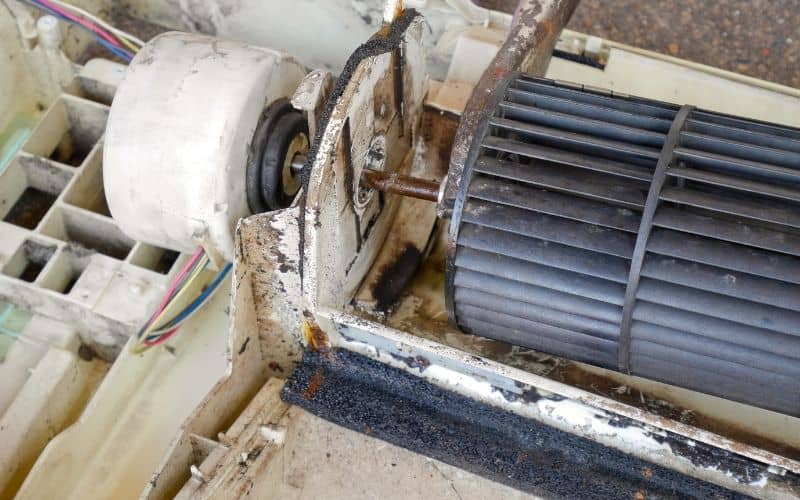
Roof Defects
After broken mounting equipment, general roof damage is the second most frequent cause of a leaking air conditioning unit on a recreational vehicle.
A leaky air conditioner unit might be caused by cracks or faulty caulking on the top of your RV.
Water is likely to pool in this region when the roof of an RV is damaged since it is the lowest point on the vehicle’s roof.
Roof damage near the air conditioner is more likely to result in leaks.
However, general damage to your recreational vehicle’s roof in any location might result in a leaky air conditioner.
Most RV roofs include a radius to direct water away from the roof.
If your roof is drooping, water might collect and seep through the AC unit, causing a roof leak.
Rainwater will follow the line of least resistance, and the AC unit is an ideal location for it to leak.
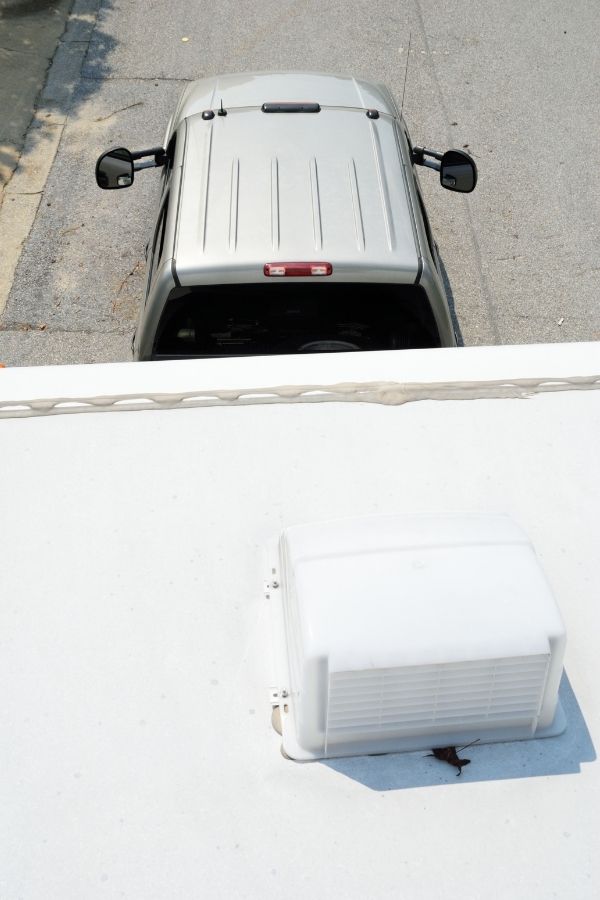
Other Points to Consider
Roof inspections are available at most RV repair shops.
During these evaluations, a professional will inspect your air conditioning machine to verify that it is functioning properly.
In addition to your normal maintenance, we suggest an annual expert examination of your RV roof.
Consider arranging your appointment in the spring, before the summer heat sets in, or in the autumn, before your rig is winterized.
It’s beneficial to have a professional inspect your RV roof for emerging problems that you may overlook.
What Can Be Done to Prevent New Leaks in the Future?
Once the leaks in your RV have been fixed, you’ll probably want to know how to prevent additional leaks from occurring.
Standard preventative maintenance techniques such as winterizing your recreational vehicle and inspecting your air conditioner’s filter, drain vent, and air filter on a regular basis will help to reduce the chance of air conditioner leaks.
In addition, you should undertake a regular examination every time you keep your RV for a lengthy period of time or when you retrieve it after storing it.
This check should encompass a range of procedures, including an examination of your vehicle’s air conditioning system.
You will most likely detect any damage to your vehicle’s air conditioning equipment during these examinations.
If you discover cracks in the caulking surrounding your unit or water accumulating on the top of your car, make the required repairs or take it to a mechanic right away.
If you don’t handle these problems straight once, you risk causing further damage and causing larger leaks.
An air conditioner cover may help protect it from the outdoors as well as UV radiation, which can cause your shroud to become brittle and break.
They may also assist keep the rain out of your aircon unit while keeping the heat in during wind and rain storms.
Read more: How to Use an RV Air Conditioner
Maintenance Recommendations for RV Air Conditioners in General
It’s crucial to have a sound general maintenance schedule for your RV air conditioner in addition to recognizing and fixing why your air conditioner leaks when it rains.
So, here are a few pointers to maintain your RV’s air conditioner in good working order.
Regularly inspect it
We suggest climbing up on your roof on a quarterly basis to evaluate the condition of your RV AC unit.
Examine the condition of the shroud and the gasket that surrounds the unit’s bottom.
It’s also a good idea to take a brief glance over your whole roof at this time to see if there are any obvious sealant or caulking concerns.
When storing your RV, keep it covered.
If you’re going to keep your RV for an extended period of time, you’ll need an RV AC cover.
When you aren’t there every day to keep an eye on your RV, this is the best method to protect your AC unit from damage and keep unwanted water out.
‘Test Runs’ should be carried out.
Even if you don’t use your air conditioner every day, it’s critical to switch it on and let it run for an hour or two on a regular basis.
We suggest turning on your air conditioner at least once every 30 days, even if you don’t need it.
This will allow you to ensure that everything is working correctly and will also notify you to any repairs that are required before they become greater problems.
RV Air Conditioner Leak FAQs
Stopping a roof leak may seem straightforward in principle, but there are other aspects to consider.
We recognize that dealing with a crisis on your own might feel daunting.
We’ve addressed some of the most common issues and questions individuals have concerning their leaking rooftop camper units to help clear things up.
Is It Dangerous To Have An Air Conditioner Leak In Your RV?
At first, any water dripping from your air conditioner seems to be nothing more than a small irritation.
However, if you don’t wipe up the water right away and prevent it from occurring again, your RV might suffer serious damage.
The floor, walls, and ceiling of an RV might soften due to water damage.
Repairing such damage may be costly and time-consuming, leaving your adventure vehicle out of operation for longer than you’d want.
In addition, the extra moisture from a leak may encourage mold and mildew development.
These flaws, if not addressed, may lead to health problems or damage to the motorhome’s structure.
Could The Water In My RV Be Due To Condensation In The Air Conditioning Unit?
If the caulking surrounding your rooftop air conditioning unit is too thick, the condensation that forms naturally as the air is cooled will have nowhere to go.
It won’t be able to avoid falling into your rig.
When you detect water leaking from your RV’s AC unit, it’s important to understand the difference.
You may have a condensate runoff and caulking issue if this happens on a regular basis, regardless of the weather.
If you only observe water when it rains, the problem is most likely caused by one of the difficulties listed above.
Final Thoughts
You may or may not use your RV air conditioner regularly depending on where you reside in your RV or where you frequently travel.
Whether you live in a hot area where you use your air conditioner every day or in a colder climate where you only use it sometimes, it’s still vital to maintain your air conditioner so that it works when you need it.
We hope that by discussing what to do if your RV air conditioner leaks when it rains, we’ve taken some of the stress out of RVing.


